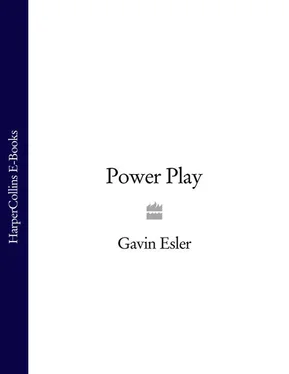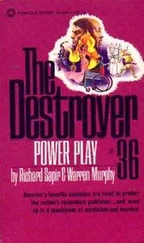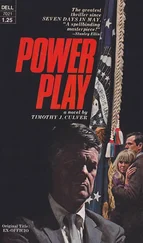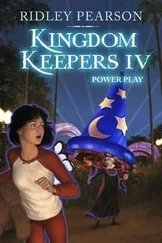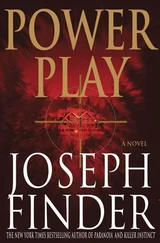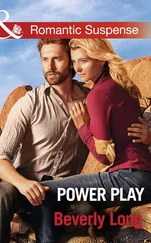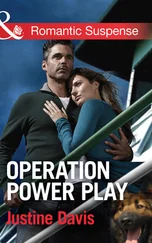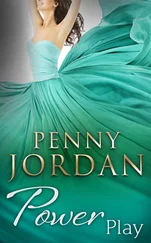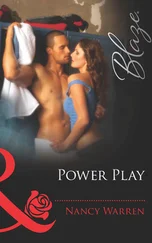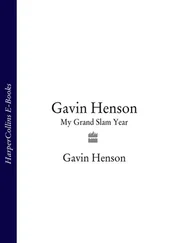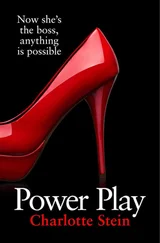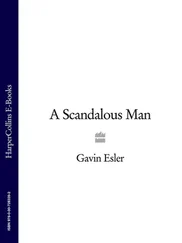Bobby Black sat at his desk and scowled. He delivered a terse lecture on the ‘need for urgency in the creation of the missile shield, and the need to live up to commitments.’ When he finished talking, I prepared to argue back, saying that we accepted the urgency but the British people were not persuaded about the nature of the threat requiring a space-based antimissile system.
‘There is a clear danger to Britain,’ I said, ‘and no clear benefit.’
It would always be cheaper for the Russians to build more missiles than it ever would be for the Americans to keep increasing the power of the supposed missile shield–even assuming that it did work. Our scientists said that, so far, it didn’t.
Suddenly Bobby Black snapped: ‘Thanks, Ambassador.’
‘B-but …’
Then he said, ‘Goodbye.’
That was it. Vice had spoken. I was ushered out by Johnny Lee who said, ‘We’ll talk after the dinner.’ He said it in a whisper. Later that evening, I read on the wire services that the White House had briefed journalists that ‘the British have been consulted’ about Strategic Missile Defence and that the British had ‘agreed with the Carr administration that they would make radar early warning facilities fully available in the United Kingdom in a timely manner.’
It was nice that he told us.
Woof, woof.
By the time of Fraser Davis’s visit, Bobby Black was so obviously the driving force in the White House that late- night comedians were joking that it was Theo Carr who was ‘one heartbeat away’ from the presidency of the United States, and I decided I needed to try to get Black and Davis together again, under tight supervision. James Byrne, in one of his Washington Post columns, said Black had become ‘like one of the Dementors in a Harry Potter novel–he sucks the souls from those who meet him’, and that he represented the Carr administration’s ‘Dark Side’.
The day after our discussion about Star Wars, Prime Minister Fraser Davis arrived in Washington for his forty-eight-hour visit. He met President Carr without a hitch, and then on the last evening the Vice-President and his wife Susan were guests of honour at my dinner at the embassy. Much thought from Johnny Lee and me went into the choreography of the evening. Davis and Black were never to be allowed to meet each other without significant adult supervision. We brought them together at the cocktail party, where they stood awkwardly side by side and allowed a few photographs to be taken alongside one of the other guests, the comedian Mike Myers. They smiled at each other, shook hands, said nothing. Then, just as we moved into dinner, Bobby Black turned to Fraser Davis.
‘Now is the time,’ he said softly. There was such a hubbub of people moving into the dining room that I barely heard the words.
‘The time for what?’ the Prime Minister smiled affably.
‘Now is the time for you to crack down on that group of your citizens who are the seedbed for terrorism. These Pakistani people have to be dealt with.’
To his credit, Fraser Davis remained calm. ‘If you mean British citizens of Pakistani origin, then they are of course British and need to be treated with equal—’
Before he could finish, Bobby Black said, ‘We are actively considering making all of these Pakistani–British people apply in person to the US embassy in London should they ever wish to get on a plane to this country. And if you do not help us in this, Prime Minister, we may take the same steps with all British citizens.’
‘There is only one class of British citizen, Vice-President Black,’ Davis responded. ‘You must do what you need to do, but you must treat all of our citizens alike, whatever their background.’
‘If that’s the way you want it,’ Bobby Black scowled and walked in to dinner, shepherded by Johnny Lee Ironside. I led the Prime Minister to his seat and took a deep breath. At least they had not actively come to blows. At the end of the dinner I made a short speech about the importance of British-American friendship in a dangerous world, about the fact that our values and interests were so often the same. I ended by trying to tease the Vice-President in a sneighbourly way. As part of the bad publicity about me being supposedly a ‘friend of terrorists’, someone had leaked my fear of flying in helicopters to various news outlets. Presumably more evidence of my role as a pansy-assed Brit. The Washington Post printed a gossipy piece suggesting that the British diplomat who was not frightened to stand up to the wrath of Vice-President Bobby Black over Muhammad Asif Khan was nevertheless terrified of a heavier-than-air machine. Towards the end of my speech I joked about it.
‘If you read the papers last week, you will know that I have a thing about helicopters. I confess that they are my personal hell–especially the ones that bring my esteemed neighbour Vice-President Black to and from official engagements.’
There was an intake of breath around the table as people began to calculate whether the British Ambassador was about to have a go at Vice in the company of the British Prime Minister. I should explain that the Vice-President and I really were neighbours. The ambassador’s residence is next door to the US Naval Observatory, which is the official vice-presidential residence. This accident of geography did not mean we were the kind of neighbours who drop in for coffee or climb over the fence to borrow a lawnmower or a cup of sugar. If you go on to Google Earth and zoom in on Massachusetts Avenue on the satellite photographs, you will see that–uniquely for Washington–Bobby Black’s home in the Naval Observatory is blanked out, pixelated. The White House isn’t. You can see it clearly. You can even look at some major US military facilities around the world; but one of the few places where Google Earth cannot shine is Bobby Black’s official home, next door to my own home, which, of course, Google Earth does show in every last detail, almost down to the rose bushes and fireflies in the garden.
‘Even though our two nations do not agree on the Kyoto Treaty on carbon emissions, Mr Vice-President,’ I smiled, full of diplomatic good cheer, ‘may I respectfully suggest that the small sacrifice of switching off the helicopter engines when the Chinooks sit idling on your lawn would signal we are more in harmony on global warming than people think—’ I paused for effect–‘as well as being good neighbours and friends, of course, with the heli-phobe next door.’
There was much laughter and then applause. Susan Black threw her head back and hooted with amusement in that easy Montana way of hers. So did the Prime Minister. Mike Myers laughed too, and then said ‘Groovy, Baby,’ in his best Austin Powers accent, so everyone got the joke. I stared over at Bobby Black, who was sitting opposite Mike Myers. His lopsided grin was fixed on his face. He turned his spoon towards his tiramisu dessert, did not look at me, and said nothing. My own tiramisu tasted of sulphur. There was to be no change in the pattern of helicopter emissions over the next year.
When the guests left at ten o’clock, the hour that most Washington events finish, I said goodbye to the Vice-President and Prime Minister, and had a few words with Kristina. Then Johnny Lee Ironside and I headed outside for a beer on the porch. The night was still warm, though we were heading towards autumn. The last moths of the year danced around the garden lights.
‘Clusterfuck,’ he replied, using one of his favourite words.
‘Unbelievable. Does he mean it about making British citizens of Pakistani origin apply for special visas?’
‘First I heard of it,’ Johnny Lee said, sucking on a bottle of Sam Adams beer. ‘Doesn’t mean to say it won’t happen.’
Читать дальше
